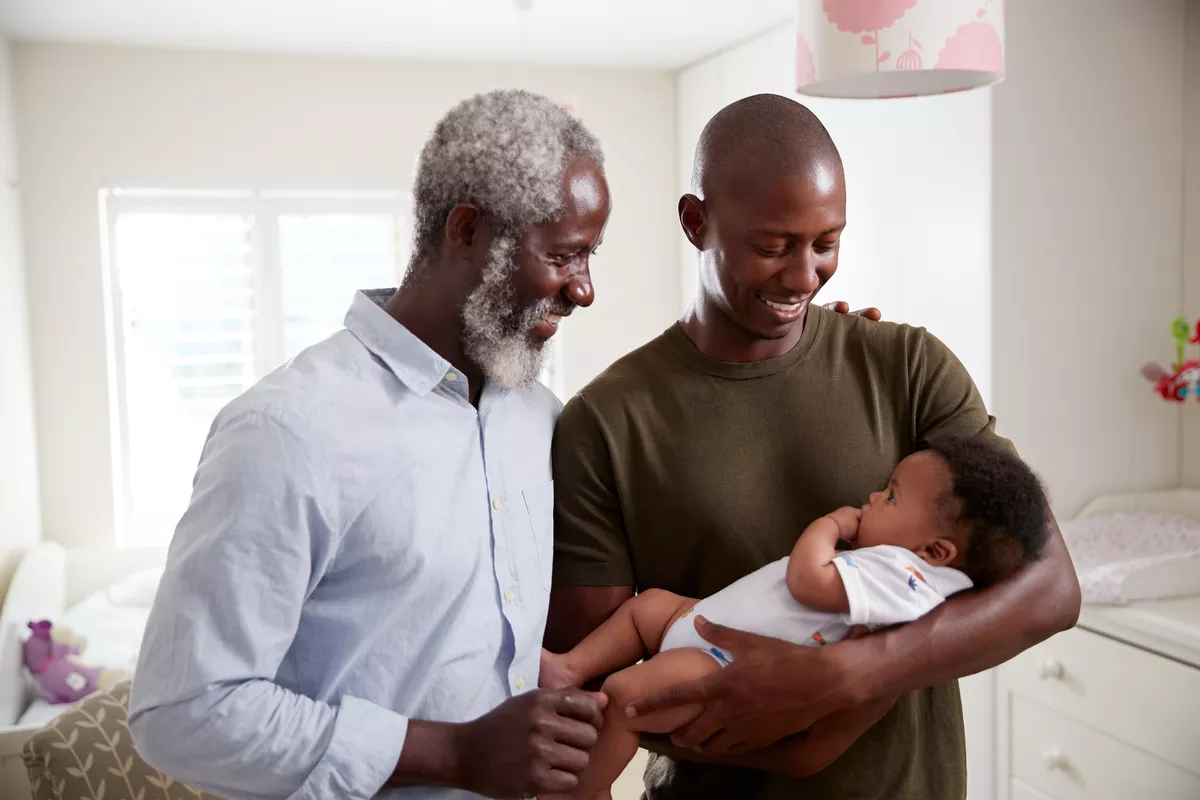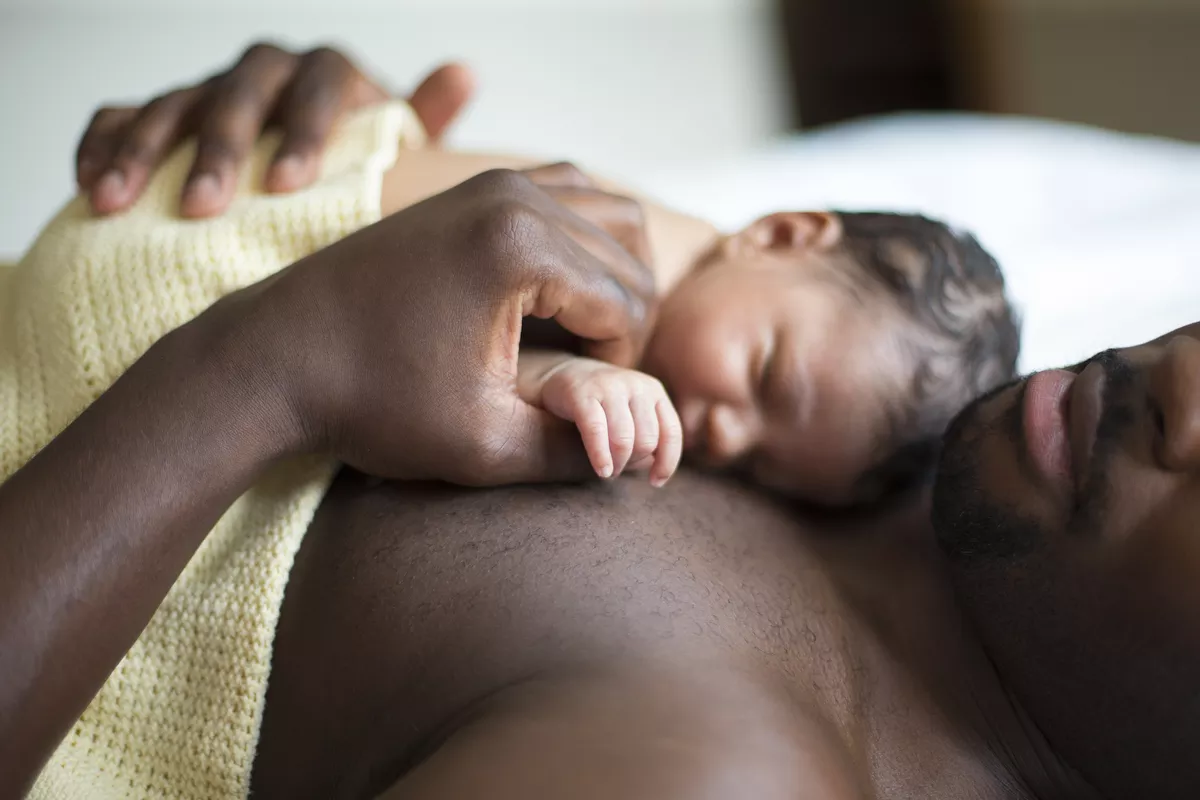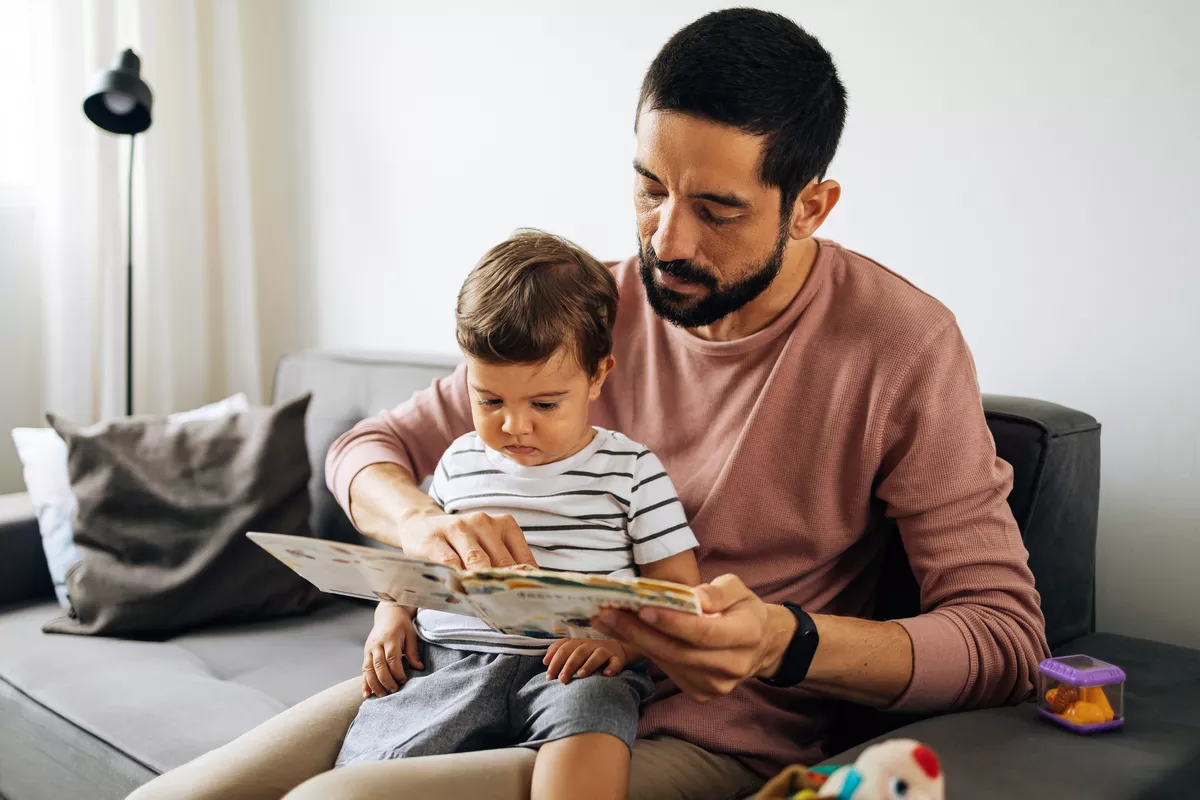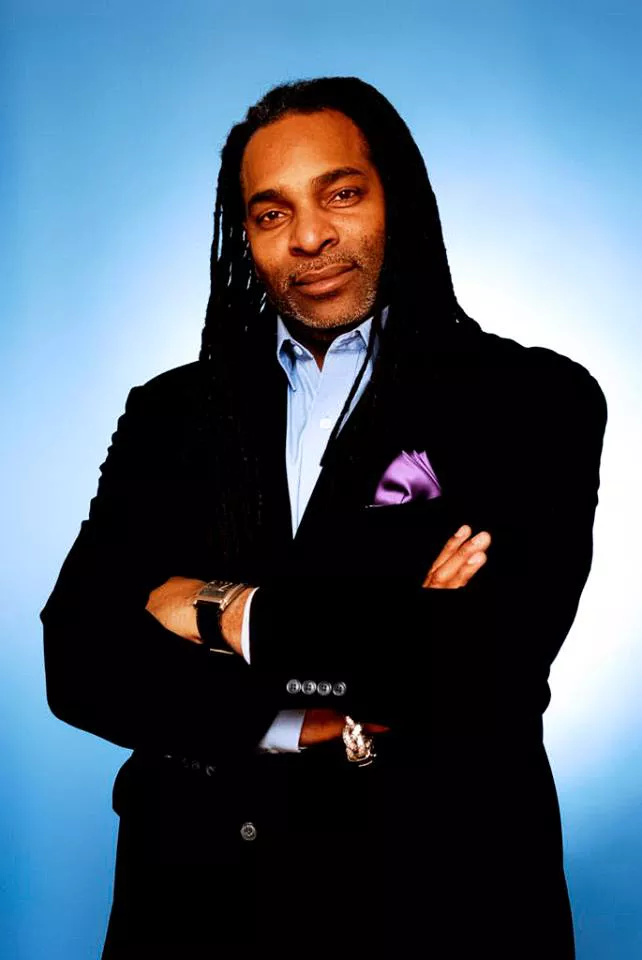👋 Welcome to Starting Early. Every other week, we spotlight new reports, useful news, engaging interviews with people doing important work, and interesting takes on maternal health and early childhood development issues.
Fathers are more involved in their children’s lives than ever before. They spend more time with their kids, take on greater household responsibilities, and are more likely to be stay-at-home dads. These changes benefit mothers and children too: Active dads contribute to improved child well-being and reduced parenting stress for moms.
But policies and programs geared toward families haven’t caught up. They often downplay or ignore the importance of dads, missing opportunities to help dads get support and resources that foster thriving families.
Read on and click the links to go deeper.
1 big thing: Dads are hardwired for fatherhood

Fatherhood is a life-changing experience, affecting dads’ minds and bodies. While most research focuses on the transition to motherhood, there’s growing interest in the physical and psychological changes dads undergo when entering fatherhood.
Strengthening bonds: Fathers experience hormonal changes during partners’ pregnancy and after their child’s birth. It’s only been recently discovered that these changes promote increased nurturing behavior and improved father-child bonds. ❤
- Decreased testosterone during their partner’s pregnancy helps dads-to-be take better care of their partners
- Increased oxytocin levels help dad feel emotionally closer to their kids
- Spikes in cortisol aid dads in identifying and responding to infant distress

Becoming a dad even reshapes the brain. New dads’ brains undergo a slight shrinkage — mirroring changes new moms experience, a recent study finds. The reduction is seen in areas of the brain associated with attention and empathy, which can help new dads identify and anticipate their baby’s needs.
Why it matters: Biological and psychological changes dads experience during pregnancy and early childhood help them be responsive and engaged parents. Father involvement is associated with:
- Increased encouragement and support for maternal breastfeeding
- Reduced likelihood that a child will repeat a grade, be suspended or expelled from school, or drop out of high school
- Increased longevity and social connectedness for dads
Yes, but: We need more research on fathers to promote stronger father-child relationships and improved family well-being. Dr. Craig Garfield, pediatrician, researcher, and dad — launched the PRAMS for Dads Pilot in Georgia to do just that.
- Traditionally used to survey new moms, the Pregnancy Risk Assessment Monitoring System (PRAMS)captures attitudes and experiences before, during, and shortly after pregnancy.
Dr. Garfield and his team are investigating fathers’ attitudes around breastfeeding initiation and duration and the role dads play in promoting safe sleep practices.
Go deeper: Check out the Starting Early interview with Dr. Garfield to learn more about his research.
2. Promoting engaged fatherhood

Innovative strategies support and empower dads. Here are 3 promising examples:
Meeting dads where they are: Home visiting programs, where a designated support person — a nurse, social worker, or early childhood specialist — visits expectant and new parents at home are powerful tools to promote maternal and infant health. Capitalizing on the benefits of home visits, some organizations tailor them to meet dads’ needs.
- The Direct Assistance to Dads (DAD) Project offers free home visits to Milwaukee dads and their families. Dads can receive one-on-one coaching, referrals to community services, and resources to strengthen parenting and communication skills. Based on the Parents as Teachers model, the DAD Project is available to dads with children up to 3 years old.
- By the numbers: The initiative has supported over 200 fathers; 96% reported stronger bonds with their children and 85% reported improved relationships with their children’s moms.
Supporting Black fathers: Black dads often confront harmful stereotypes, despite a high level of involvement in child rearing. They also face other challenges that can threaten their well-being, including systemic racism, discrimination, and economic inequality.
- Based in Trenton, NJ, Hey Black Dad helps expectant dads transition to fatherhood. Founded by a male birth and postpartum doula, the organization offers prenatal, childbirth, and postpartum education geared for dads. Hey Black Dad also trains doulas on how to engage with dads and offer father-centered support.
Improving paternal mental health: Fatherhood can be challenging and overwhelming. Many dads experience postpartum depression and other mental health challenges, but they’re less likely than moms to seek mental health services.
- The first mental health and substance abuse treatment facility serving dads and their families, Fathers’ UpLift in Dorchester, MA, provides a safe and supportive environment for fathers to seek mental health assistance through individual, family, couples, and group therapy sessions. The organization has served over 12,000 dads and their families through youth programming, coaching services, and other programs.
3 questions with Joel Austin

We sat down with Joel Austin, president, CEO, and founder of Philadelphia-based Daddy University Inc., a parenting education company providing services, advocacy, and programming for fathers and male caregivers. A father of 4, Joel started Daddy University Inc. based on his own experience feeling like an “invisible client” during his child’s birth. Here are highlights from our conversation:
How does Daddy University Inc. support families?
Dads tend to do better with more information. Our job is to put informed dads into the maternal health world and teach others how to connect with dads, be trustworthy to them, and get them the information needed to support and have better outcomes.
Daddy University Inc. offers fatherhood/parenting education classes for caregivers and paternal health and wellness certificates for birth workers. We do these trainings so doulas, lactation specialists, even OBGYNs can be more inviting to dads. We host fatherhood conferences where dads learn about types of food, budgeting, and things like that and a Father’s Club every 2 weeks. We even launched our own fraternity called Delta Alpha Delta (DAD).
We started Doulas 4 Dads and trained 8 Black and brown male doulas to cover Philadelphia, Delaware County, PA, and a bit of New Jersey. We work with mom and dad, and our mission is to bring him into the pregnancy and birth.
What role do dads play in maternal health?
When it comes to maternal health, dads know a lot. He might not know the technical information, but he has all the secrets about mom’s wants and needs. In Doulas 4 Dads, we explain to dads that every ounce of support given to a new mother is a pound of support for your new baby.
But we don’t know what we don’t know. The number one question that most dads ask is, “How can I help?” New moms have things going on, so communication might not be her forte right now. Doulas, lactation specialists, OBGYNs, and doctors can do a better job of saying, “This is what you can do to help.” Dads want to know and they’re very teachable.
How can those working in maternal and infant health better serve dads?
You have to advocate for us and fight for us to be a part of things. As a certified postpartum doula, I advocate for new dads in the birth plan. So if there are things for the mom to sign or new situations for mom, you have to wait until dad is in the room.
When a provider comes in the room, they should introduce themselves to mom and dad. If they both agreed on an epidural, providers should explain to dad, “It is going to be painful, so I need your help. I need you to sit in front of her, hold her hands, and talk to her casually as I do this. I need you to assist me because this is important.”
The roundup
Learn about upcoming events, new funding opportunities, and jobs in maternal and infant health and early childhood:
- Serving NJ fathers: The Father Center of New Jersey seeks members to join its New Jersey Fatherhood Collective. The group will meet quarterly to discuss forming a statewide network of father-inclusive services and brainstorm solutions to better serve dads. Sign up here.
- Paternal mental health: Join the National Responsible Fatherhood Clearinghouse, June 7-8, for a virtual event on dads’ mental health. Register here.
- Celebrate dads: Join Fathering Together for Father’s Friday 2023. It runs from June to September and features 14 panel discussions on paternity leave, raising empathetic sons and empowered daughters, and other issues dads face.
- Support health equity: The Greater Newark Healthcare Coalition seeks an executive director. Apply here to join a team dedicated to improving the health and well-being of the Newark community.
- Innovations in early childhood development: Promise Venture Studio hosts a June 29 webinar featuring presentations from members of its 2022 Promising Ventures Fellowship. Register to attend.
- Wins, stories, and lessons learned: WE GOT US NOW released its 2023 Impact Report, detailing the organization’s efforts empowering children with incarcerated parents and addressing the impact of mass incarceration. Check out the Starting Early issue that includes an interview with WE GOT US NOW CEO Ebony Underwood.
- Pathways to success for young men of color: The Obama Foundation named Newark, NJ a My Brother’s Keeper Alliance model community for its record in improving outcomes for boys and young men of color.
